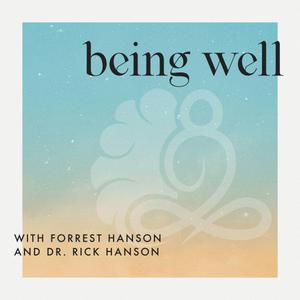
Being Well with Forrest Hanson and Dr. Rick Hanson
Rick Hanson, Ph.D., Forrest Hanson
- 1 hour 7 minutesHow to Get Out of a Depressed Mood
About 30% of people will experience depression at some point in their lives, and most of us know what a depressed mood feels like. Because depressive episodes are common, there’s no lack of good advice out there. But depression is so challenging in part because it attacks our ability to do anything about it. Depression saps our energy, is demotivating, and makes it difficult to actually put that good advice into practice. In this episode, Dr. Rick and Forrest explore what we can do about this, and how we can break out of an episode of depressed mood.
They start by talking about what causes depression, introduce the biopsychosocial model, and identify an overall framework for most depressive episodes. Rick and Forrest then explain the vicious cycle of depressed mood before focusing on what a person can do practically to break the cycle. Topics include identifying mindsets, changing how we interpret information, fully experiencing our emotions, rumination and ruminatory processes, taking in the good, and creating openness to possibility.
You can watch this episode on YouTube.
Key Topics:
0:00: Introduction
2:15: Distinguishing a depressed mood from MDD
7:25: Causes of depression
12:00: Absolutist beliefs and self-compassion
17:45: The paradox of motivation, and small ways to break the cycle
24:20: Fully experiencing your feelings, and emotional release
30:05: Discerning between thoughts and experiences
38:30: Rumination, finding evidence of positive change, and interoception
42:50: Recognizing what you don’t know, being receptive to love, and simply being
52:00: Recap
I am now writing on Substack, check out my work there.
Support the Podcast: We're now on Patreon! If you'd like to support the podcast, follow this link.
Sponsors
Sign up for a one-dollar-per-month trial period at shopify.com/beingwell.
Trust your gut with Seed’s DS-01 Daily Synbiotic. Go to Seed.com/BEINGWELL and use code 25BEINGWELL to get 25% off your first month.
OneSkin focuses on delivering more than superficial results for your skin. Get started today with 15% off using code BEINGWELL at oneskin.co.
Join over a million people using BetterHelp, the world’s largest online counseling platform. Visit betterhelp.com/beingwell for 10% off your first month!
Connect with the show:
22 July 2024, 10:00 am - 1 hour 17 minutesWhy You’re Stuck, and How to Fix It
Most of us have gone through a time in life when it felt like we were stuck: unable to deal with our issues, change in useful ways, or make our lives the way we wanted them to be. It’s often not for lack of trying. You read the books, you followed the exercises, you maybe even saw a therapist…but it just didn’t help. On today’s episode, Dr. Rick and Forrest explore why this happens, and what we can do about it.
Rick shares a simple framework we can approach change through before Forrest digs into the six key factors that prevent us from changing. They talk about self-acceptance and how we can relax our attachment to the current version of ourselves, before moving on to factors that affect motivation. They then discuss working with fears, becoming courageous, and leaning into a more authentic version of who we are.
You can watch this episode on YouTube.
Key Topics:
0:00: Introduction
1:25: What we can (and can’t) change
4:15: Taking inventory: What hasn’t worked?
9:00: Seeing what’s true
15:25: Holding onto an identity, recognizing your defenses, and experimenting
29:55: Motivating yourself, and releasing feelings of guilt
36:35: Secondary gains
46:30: Courage, boredom, and fear of the unknown
50:20: Appreciating how our environment influences us
55:40: Seeing what’s already working, and getting new inputs
1:04:00: Authentically being you
1:06:55: Recap
I am now writing on Substack, check out my work there.
Support the Podcast: We're now on Patreon! If you'd like to support the podcast, follow this link.
Sponsors
Sign up for a one-dollar-per-month trial period at shopify.com/beingwell.
Trust your gut with Seed’s DS-01 Daily Synbiotic. Go to Seed.com/BEINGWELL and use code 25BEINGWELL to get 25% off your first month.
OneSkin focuses on delivering more than superficial results for your skin. Get started today with 15% off using code BEINGWELL at oneskin.co.
Join over a million people using BetterHelp, the world’s largest online counseling platform. Visit betterhelp.com/beingwell for 10% off your first month!
Connect with the show:
15 July 2024, 10:00 am - 1 hour 14 minutesDepression and Self-Care, Accepting Love, and Building Stronger Relationships: July Mailbag
Dr. Rick and Forrest open the mailbag and answer questions focused on strengthening our relationships. They explore how we can support friends and loved ones who are experiencing depression while also caring for ourselves, managing different levels of capacity within a relationship, maintaining self-worth and trust in the context of body image insecurities, and navigating the often tricky dynamics of a partner’s relationship with their ex. The episode closes with Rick and Forrest sharing how they’ve handled repair in their parent/child relationship, and what we can do to manage anxieties about the future.
You can watch this episode on YouTube.
Key Topics:
0:00: Introduction
1:40: Establishing boundaries with a loved one who is depressed
11:00: Managing different levels of capacity in a relationship
16:45: Body image insecurity, and trusting that others love us
31:45: How do I navigate my partner's relationship with their ex?
42:15: I’m nervous that as my child ages they’ll blame me for my parenting. What can I do?
1:02:15: Recap
I am now writing on Substack, check out my work there.
Support the Podcast: We're now on Patreon! If you'd like to support the podcast, follow this link.
Sponsors
Sign up for a one-dollar-per-month trial period at shopify.com/beingwell.
Trust your gut with Seed’s DS-01 Daily Synbiotic. Go to Seed.com/BEINGWELL and use code 25BEINGWELL to get 25% off your first month.
OneSkin focuses on delivering more than superficial results for your skin. Get started today with 15% off using code BEINGWELL at oneskin.co.
Join over a million people using BetterHelp, the world’s largest online counseling platform. Visit betterhelp.com/beingwell for 10% off your first month!
Connect with the show:
8 July 2024, 10:00 am - 1 hour 5 minutesHow to Become a Disciplined Person
If we want to accomplish something in life it usually takes a combination of motivation and consistency - in other words, discipline. Discipline is both essential…and shockingly hard to develop. In today’s episode, Forrest and Dr. Rick explore how we can become more disciplined. They talk about whether discipline came naturally to Rick, and the lessons we can learn from his journey with discipline. Key topics include how to make even frustrating tasks rewarding, the relationship between discipline and self-concept, how to identify key wants, needs, and aspirations, and learning to feel good when we do good.
You can watch this episode on YouTube.
Key Topics:
0:00: Introduction
2:30: Rick’s personal history with cultivating discipline
5:45: Finding reward in necessary tasks
17:50: Engaging in your life, and knowing what you really care about
22:35: The power of your self-concept
31:45: Breaking things down into small parts
36:45: Motivation, distress tolerance, and meta-motivation
46:35: Getting out of a negative mindset, and finding what works for you
54:10: Recap
I am now writing on Substack, check out my work there.
Support the Podcast: We're now on Patreon! If you'd like to support the podcast, follow this link.
Sponsors
Sign up for a one-dollar-per-month trial period at shopify.com/beingwell.
Transform your health with the ZOE Science & Nutrition podcast. Find it wherever you listen to podcasts.
Zocdoc helps you find expert doctors and medical professionals that specialize in the care you need, and deliver the type of experience you want. Head to zocdoc.com/being and download the Zocdoc app for FREE.
OneSkin focuses on delivering more than superficial results for your skin. Get started today with 15% off using code BEINGWELL at oneskin.co.
Join over a million people using BetterHelp, the world’s largest online counseling platform. Visit betterhelp.com/beingwell for 10% off your first month!
Connect with the show:
1 July 2024, 10:00 am - 1 hour 23 minutesPsychological Defenses: How to Understand (and change) Your Mind and Behavior
Psychological defenses are subconscious strategies we use to protect ourselves from uncomfortable emotions, and they exert a hidden power over our behavior. From denial and repression to projection and rationalization, Dr. Rick and Forrest explore how these defenses shape our actions, influence our relationships, and affect our overall well-being.
They start with the function and structure of most defenses, before giving a few simple examples. Rick then dives into the role of defenses in psychoanalytic theory, their role in managing self-worth and shame, and what we can do to become less defensive over time. They close with practical strategies for working with our defenses, including a brief discussion of what we can do to help other people with their defenses.
You can watch this episode on YouTube.
Key Topics:
0:00: Introduction
2:30: Psychological and historical factors influencing psychological defensiveness
8:00: Some examples of unconscious anxiety bubbling up
12:00: Repression, regression, projection, reaction formation, and sublimation
16:55: An overview of Freud’s developmental model of the personality
24:10: A few examples of how our defenses manifest
33:40: Consciousness, competence, and joining the defense
44:00: Navigating shame and guilt
50:15: Distress tolerance
57:15: Social connection, and finding healthy outlets
1:00:20: When and how to approach others about their defensiveness
1:10:45: Recap
I am now writing on Substack, check out my work there.
Support the Podcast: We're now on Patreon! If you'd like to support the podcast, follow this link.
Sponsors
Sign up for a one-dollar-per-month trial period at shopify.com/beingwell.
Transform your health with the ZOE Science & Nutrition podcast. Find it wherever you listen to podcasts.
Zocdoc helps you find expert doctors and medical professionals that specialize in the care you need, and deliver the type of experience you want. Head to zocdoc.com/being and download the Zocdoc app for FREE.
OneSkin focuses on delivering more than superficial results for your skin. Get started today with 15% off using code BEINGWELL at oneskin.co.
Join over a million people using BetterHelp, the world’s largest online counseling platform. Visit betterhelp.com/beingwell for 10% off your first month!
Connect with the show:
24 June 2024, 10:00 am - 1 hour 11 minutesThe Fawn Response: People Pleasing, Self-Abandonment, and Standing Up for Yourself
Dr. Rick and Forrest finish their series on the stress responses with the fawn response: an appeasement strategy where we manage stressful situations by giving others what they want. Rick and Forrest start by discussing common symptoms, including people pleasing, self-abandonment, difficulty saying no, weak boundaries, and chronic self-sacrifice. They talk about the roots of the fawn response and its connection to complex PTSD before exploring people pleasing in detail. In the second half of the episode they focus on practical tools for developing healthy boundaries, self-acceptance, and a stronger sense of self.
You can watch this episode on YouTube.
Key Topics:
0:00: Introduction
2:15: What the fawn response looks like
9:05: Power imbalances, shame, and contempt
11:35: What personal history tends to lead to fawning?
20:00: How to work on the tendency to fawn
36:30: Shame, self-acceptance, and opening up to self-expression
41:25: The fawn response in relationship
46:40: Becoming your own source of safety
52:20: Making equitable arrangements, and acknowledging your best efforts
1:01:50: Recap
I am now writing on Substack, check out my work there.
Support the Podcast: We're now on Patreon! If you'd like to support the podcast, follow this link.
Sponsors
Sign up for a one-dollar-per-month trial period at shopify.com/beingwell.
Transform your health with the ZOE Science & Nutrition podcast. Find it wherever you listen to podcasts.
Zocdoc helps you find expert doctors and medical professionals that specialize in the care you need, and deliver the type of experience you want. Head to zocdoc.com/being and download the Zocdoc app for FREE.
OneSkin focuses on delivering more than superficial results for your skin. Get started today with 15% off using code BEINGWELL at oneskin.co.
Join over a million people using BetterHelp, the world’s largest online counseling platform. Visit betterhelp.com/beingwell for 10% off your first month!
Connect with the show:
17 June 2024, 10:00 am - 52 minutes 43 secondsHow to Create a Secure Relationship with Elizabeth Ferreira
Somatic trauma therapist Elizabeth Ferreira joins Forrest to explore how we can create more secure relationships. They talk about the lessons they've learned from their relationship, the impact of trauma and prior relationship wounds, and how very different people can make things work. Topics include complex PTSD, how to work through disagreements, changing our model of relationships, and learning how to actually support your partner.
I loved this conversation, and hope you enjoy it!
You can watch this episode on YouTube.
Key Topics:
0:00: Introduction
1:10: The myth of relationships solving your problems, and self-awareness
4:25: Me, you, and us
13:45: Changing your partner by changing yourself
16:45: Embracing the challenges of vulnerability
23:25: Disagreeing well, making specific requests, and holding space
33:05: Learning how to support your partner
37:40: Five different styles of relationship
40:55: Moving from trying to please your partner to showing compassion
45:15: Love as a choice, and expressing wants and needs positively
49:30: Simply liking your partner
I am now writing on Substack, check out my work there.
Support the Podcast: We're now on Patreon! If you'd like to support the podcast, follow this link.
Sponsors
Join over a million people using BetterHelp, the world’s largest online counseling platform. Visit betterhelp.com/beingwell for 10% off your first month!
If you’re navigating something messy, call The Dr. John Delony Show. Dr. John shares practical advice on how to connect with people, face depression, overcome anxiety, and learn what it means to be well. Listen wherever you get your podcasts.
Transform your health with the ZOE Science & Nutrition podcast. Find it wherever you listen to podcasts.
OneSkin focuses on delivering more than superficial results for your skin. Get started today with 15% off using code BEINGWELL at oneskin.co.
Connect with the show:
10 June 2024, 10:00 am - 1 hour 8 minutesBecoming Self-Confident, Learning Healthy Relationship Skills, and Trusting Yourself: June Mailbag
Dr. Rick and Forrest open up the mailbag and answer questions from listeners. They explore how to deal with chronically negative people, managing avoidant tendencies that get in the way of us finding a great relationship, and separating normal desires for support from more problematic ones. They then talk about how we can build self-confidence and become more internally referenced, before closing the episode with a sticky situation involving supporting an aging parent.
If you’d like to send in a question to be answered on the podcast, join our Patreon or email us at [email protected].
You can watch this episode on YouTube.
Key Topics:
0:00: Introduction
1:00: My friend is chronically negative, what can I do?
13:05: How can I move past a cycle of avoidance that’s inhibiting my ability to find a good relationship?
26:05: I want to be supported by my partner, but I’m worried about becoming enmeshed. How can I seek help in a healthy way?
39:30: How do I stop seeking validation from others?
45:20: How do I react to ongoing criticism from an aging parent?
58:15: Recap
I am now writing on Substack, check out my work there.
Support the Podcast: We're now on Patreon! If you'd like to support the podcast, follow this link.
Sponsors
Join over a million people using BetterHelp, the world’s largest online counseling platform. Visit betterhelp.com/beingwell for 10% off your first month!
If you’re navigating something messy, call The Dr. John Delony Show. Dr. John shares practical advice on how to connect with people, face depression, overcome anxiety, and learn what it means to be well. Listen wherever you get your podcasts.
Transform your health with the ZOE Science & Nutrition podcast. Find it wherever you listen to podcasts.
OneSkin focuses on delivering more than superficial results for your skin. Get started today with 15% off using code BEINGWELL at oneskin.co.
Connect with the show:
3 June 2024, 10:00 am - 1 hour 21 minutesThe Psychology of Manifesting: How to Create the Life You Want
Forrest and Dr. Rick explore “manifesting:” the idea that our thoughts impact the world around us, and by changing those thoughts we can change our lives. Talking about manifesting is complicated, because on the one hand our thoughts really do matter. On the other, manifesting is closely tied to a small mountain of problematic pseudoscience. They discuss and debate some of the issues with manifesting and the law of attraction before focusing on how to apply key psychological principles to create the life you want.
Rick and Forrest talk about creating clarity around our goals, setting intentions, improving self-worth and self-efficacy, and overcoming some of the negative unconscious beliefs that can get in our way, before exploring authenticity, consistent effort, and working with fear and inhibition. Then Rick closes the episode by walking us through a practical example of how to change a belief.
You can watch this episode on YouTube.
Key Topics:
0:00: Introduction
3:00: Defining manifestation, and separating psychological and supernatural mechanisms of action
6:55: The mind-body connection, and the psychological aspects of manifesting
15:50: Charlatanism, preying on uncertainty, and the problems with the law of attraction
25:20: Changing behavior vs. changing thoughts, and the lure of the supernatural
32:10: If you want to skip the context, start here.
32:35: Getting what we subconsciously believe we are worthy of, and “don’t know” mind
38:50: Identifying wants, surrendering to the best within us, and using pain as a guide
48:55: Embracing the reality of consistent effort
54:55: How to change a negative belief
1:08:10: Recap
I am now writing on Substack, check out my work there.
Support the Podcast: We're now on Patreon! If you'd like to support the podcast, follow this link.
Sponsors
Join over a million people using BetterHelp, the world’s largest online counseling platform. Visit betterhelp.com/beingwell for 10% off your first month!
If you’re navigating something messy, call The Dr. John Delony Show. Dr. John shares practical advice on how to connect with people, face depression, overcome anxiety, and learn what it means to be well. Listen wherever you get your podcasts.
Transform your health with the ZOE Science & Nutrition podcast. Find it wherever you listen to podcasts.
OneSkin focuses on delivering more than superficial results for your skin. Get started today with 15% off using code BEINGWELL at oneskin.co.
Connect with the show:
27 May 2024, 10:00 am - 1 hour 17 minutesUnderstanding the “Flight” Response: Anxiety, Avoidance, and Feeling Safe
Dr. Rick and Forrest discuss the “flight” response to stress, which includes feelings of anxiety and fear, avoidant behavior, and an underlying sense of insecurity. They explore the emotions and behaviors associated with the flight response, and how we can build up a stronger, more secure sense of who we are. Rick shares some practical tools that will help you change your self-concept, safely apply principles from graduated exposure, and feel safer from the inside-out.
I’ve loved this series on the stress responses, and think you’ll get a lot out of this episode.
You can watch this episode on YouTube.
Key Topics:
0:00: Introduction
1:00: The purpose of the flight response, and when it is and isn’t useful
5:35: Social withdrawal, conflict avoidance, and preserving safety vs. comfort
12:15: The trouble with low likelihood, high-cost risks
16:35: Exploring our capacity for stress, and identifying the risks worth taking
26:30: Feeling “sturdy,” and why we choose the flight response vs. other stress responses
33:30: Graduated exposure
39:05: Learning to trust our new capabilities as we change
44:50: Overdoing a change as a form of self-sabotage, and reserving the power to flee
54:25: Responding to anxiety
1:01:40: Being present with painful situations we can’t escape
1:08:40: Recap
I am now writing on Substack, check out my work there.
Support the Podcast: We're now on Patreon! If you'd like to support the podcast, follow this link.
Sponsors
Join over a million people using BetterHelp, the world’s largest online counseling platform. Visit betterhelp.com/beingwell for 10% off your first month!
If you’re navigating something messy, call The Dr. John Delony Show. Dr. John shares practical advice on how to connect with people, face depression, overcome anxiety, and learn what it means to be well. Listen wherever you get your podcasts.
Transform your health with the ZOE Science & Nutrition podcast. Find it wherever you listen to podcasts.
OneSkin focuses on delivering more than superficial results for your skin. Get started today with 15% off using code BEINGWELL at oneskin.co.
Connect with the show:
20 May 2024, 10:00 am - 1 hour 8 minutesManaging The “Fight” Response: Anger, Repression, and Self-Regulation
Dr. Rick and Forrest continue their series on the stress responses with the “fight” response to stress. They explore anger, repression, and the balance of self-expression and self-regulation before talking about how we can claim the adaptive aspects of the fight response without falling prey to its more problematic aspects. A major focus of the episode is resentment and repression, alongside related topics like empowering yourself, managing expectations, and “experiencing out.”
You can watch this episode on YouTube.
Key Topics:
0:00: Introduction
1:15: The useful aspects of anger
5:40: Specific behaviors associated with the fight response
8:35: Giving yourself permission to express anger
13:40: Navigating resentment
21:40: Thwarted expectations as a source of unhealthy anger
32:05: Claiming your anger, and being wary of its seductive nature
35:45: Developing an authentic sense of empowerment
39:45: Going from complaint to request
43:30: Antidotes to unhealthy anger
52:40: Challenging authority without feeling intimidated or shamed
54:20: When we’re angry at ourselves
59:00: Recap
I am now writing on Substack, check out my work there.
Support the Podcast: We're now on Patreon! If you'd like to support the podcast, follow this link.
Sponsors
Join over a million people using BetterHelp, the world’s largest online counseling platform. Visit betterhelp.com/beingwell for 10% off your first month!
If you’re navigating something messy, call The Dr. John Delony Show. Dr. John shares practical advice on how to connect with people, face depression, overcome anxiety, and learn what it means to be well. Listen wherever you get your podcasts.
Transform your health with the ZOE Science & Nutrition podcast. Find it wherever you listen to podcasts.
OneSkin focuses on delivering more than superficial results for your skin. Get started today with 15% off using code BEINGWELL at oneskin.co.
Connect with the show:
13 May 2024, 10:00 am - More Episodes? Get the App
Your feedback is valuable to us. Should you encounter any bugs, glitches, lack of functionality or other problems, please email us on [email protected] or join Moon.FM Telegram Group where you can talk directly to the dev team who are happy to answer any queries.
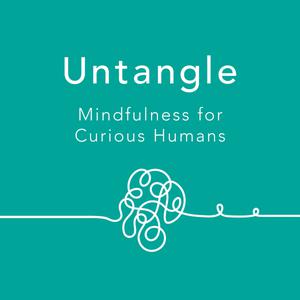 Untangle
Untangle
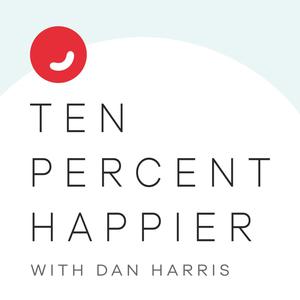 Ten Percent Happier with Dan Harris
Ten Percent Happier with Dan Harris
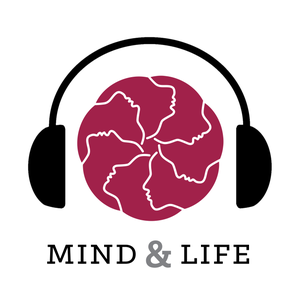 Mind & Life
Mind & Life
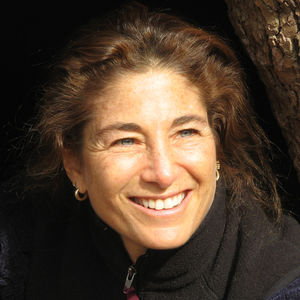 Tara Brach
Tara Brach
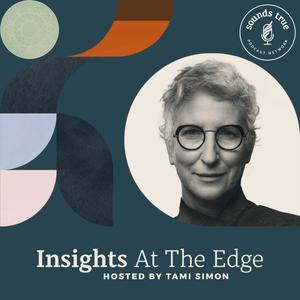 Sounds True: Insights at the Edge
Sounds True: Insights at the Edge
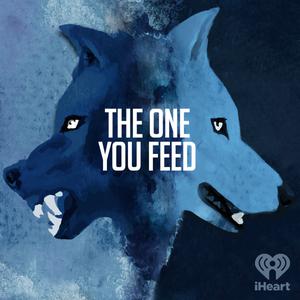 The One You Feed
The One You Feed